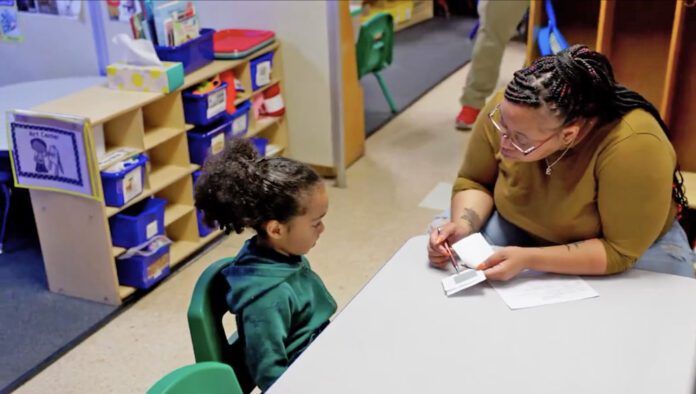
The push for Universal Education Savings Accounts or ESAs in Tennessee is heating up.
Universal Education Savings Accounts (ESAs) are a relatively recent development in the educational choice landscape in the United States.
ESAs are state-funded accounts that families can use to pay for various educational expenses, including private school tuition, tutoring, and educational materials.
The history of ESAs in Tennessee is marked by legal controversies and ongoing debates about the role of public and private funding in education.
The state’s experience mirrors the broader national conversation about the balance between expanding educational choices for families and supporting our public education systems.
Eligibility for ESAs varies by state. In states that have such laws, ESAs are available to all students, regardless of income or special needs status.
In Tennessee, however, ESAs are available only to students zoned to attend a public school in Memphis-Shelby County Schools, Metro Nashville Public Schools, Hamilton County Schools, or a school in the Achievement School District (ASD).
Tennessee Gov. Bill Lee wants to expand the program beyond just those three school districts by offering public money for private schooling statewide, regardless of family income.
Last week, the Governor introduced the Tennessee Education Freedom Scholarship Act, which could allow students in Tennessee to attend any school, private or public, of their choosing.
The governor’s proposal would provide scholarships next school year, worth about $7,000 each, to 20,000 students.
According to the governor’s office, “10,000 grants will be reserved for students whose families’ incomes are below 300% of the federal poverty level, students with disabilities, and those who are eligible for the existing Education Savings Accounts pilot program. The remaining 10,000 slots will be made available to any student currently entitled to attend a public school.”
After the first year, Gov. Lee said the plan will expand to include “all Tennessee students entitled to attend a public school, prioritizing currently enrolled students, low-income, and public-school students if demand exceeds available funding.”
The governor’s new proposal would make choice a reality for every Tennessee family and child. The grants could be used at any private school and for most home school programs as well.
The governor’s plan still must be approved by the state legislature. Tennessee would be the ninth state in the U.S. to pass such legislation.
From a parent’s perspective, the combination of charter schools and private school vouchers or education savings accounts to support broader school choice is a huge plus.
As a parent, I support the idea of using my tax dollars to send my child to whatever school I choose, whether it is a public charter school, a private school, or even for homeschooling.
However, there are some unintended consequences that need to be taken into consideration as this process moves forward.
Taking taxpayer dollars to fund private school tuition statewide would divert much-needed resources from already underfunded public schools.
This proposal, in fact, could do great harm to public education in Tennessee and other states with similar laws.
Memphis-Shelby County Schools, for example, is looking at cutting up to $150 million in next year’s budget.
The governor’s proposal would surely entice more students to leave district schools for private or other educational alternatives, which would invite even deeper cuts to future budgets.
Some advocates believe ESAs can help improve education by making public schools compete with private schools for students in a free market environment.
As a former charter school principal, I always felt the tug and pressure of free market competition for students in our school system.
Each year, we competed vigorously with both private and other charter schools for students to fill our seats.
Don’t get me wrong. I am a staunch advocate for the expansion of school choice in our state – the broader the menu of “quality” choices, the greater the benefits for our children.
With the continued growth of charter schools and now the expanded availability of private school vouchers, parents have a growing menu of high-quality schools from which to choose for their children’s education.
I’m concerned about the damage that can be done on our way to this new normal in public education.
Public schools will have to offer better educational services and safer spaces for learning and be more accountable to parents to compete with publicly funded private schools.
Yes, that’s right, I know, it sounds weird: “publicly funded private schools.”
Who could have imagined we’d be seeing the emergence of government-subsidized private school tuition used in the manner we’re seeing it unfold today?
This type of funding system should be monitored closely. Safeguards must be put in place to track how these students and families are being supported and strengthen; accountability measures to ensure funds are being utilized appropriately.
The future of ESAs is uncertain. The debate will continue for years to come. However, it is clear that ESAs are a growing trend in school choice and are likely to play an increasingly significant role in American education for years to come.
So, hold on to your hats, we are on the verge of the most sweeping change in K-12 education policy in decades, and it’s going to be a very bumpy ride.
(Follow me, TSD’s education columnist, on Twitter @curtisweathers. Email me at curtislweathers@gmail.com.)



